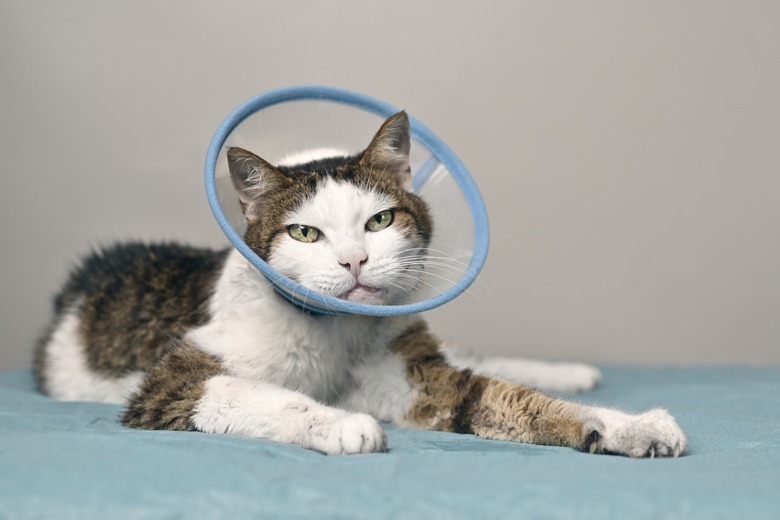How Often Do You Take A Cat To The Vet?
How often should you take your cat to the vet?
Getting your cat the proper medical care is an important part of being a responsible pet owner. Preventative care is the best way to go about this and involves regular visits to the veterinarian. But, how often should a cat see their doctor?
The answer to this question depends on the age of your cat, their medical history, any current issues, and where they're at with vaccinations. Of course, if health problems arise you should always consult a veterinarian as soon as possible. But generally, a simple wellness schedule is all that's needed to keep your cat in good health.
Kitten (birth to age 12 months) veterinarian visits
Kitten (birth to age 12 months) veterinarian visits
Felines aged under one year old are typically considered kittens. Cats within this stage of life will need a bit more medical attention than adult cats. Very young kittens under four months old will need a full round of core vaccinations. These take place on a set vaccination schedule.
The vaccines start at around six to eight weeks of age and are given every three to four weeks until the kitten is about four months old. The vaccines provided in this round of core shots include vaccines against feline distemper, feline herpes, calicivirus (a cause of respiratory infections), and rabies, the latter of which is given at around 12 weeks.
Additionally, non-core vaccines may be given to kittens when a certain disease is prevalent in their location, like feline leukemia. This disease is common among outdoor cats and indoor cats exposed to outdoor cats. Fleas, ear mites, and worms are also pests that can affect many cats and kittens. Therefore, be sure to have your veterinarian check for these parasites during these early visits.
Only use treatments prescribed to them as kittens — they can be especially sensitive to things like flea medication. Spaying and neutering are also usually done during the kitten years. These procedures often take place at around six months.
Adult cat (ages 1-7 years) veterinarian visits
Adult cat (ages 1-7 years) veterinarian visits
Adult cats and mature cats should still be seen by their veterinarian regularly. But, they won't need to go nearly as often as kittens — if they're in good health.
In most cases, taking adult cats to the veterinarian once a year is a proper schedule to stay on. This allows their medical provider to administer annual booster shots for their core vaccines when needed. They can also gauge healthy weight and bone development.
Ideally, a dental care routine should start at this stage, and it should be practiced throughout their life. This includes dental cleanings that may prevent gum disease and gingivitis in cats.
Mature cat (ages 7-10 years) veterinarian visits
Mature cat (ages 7-10 years) veterinarian visits
Mature cats are felines between adulthood and senior cat status, so think of cats between about seven and 10 years old. Assuming your cat is in good health at this stage, an annual check-up will still suffice. Although wellness exams may include more things like blood work, mobility checks, and increased dental precautions.
Diet considerations for cats at this age are part of maintaining overall health as well. Making any changes made to your cat's routine or switching to food for mature cats should be done under veterinary care.
Senior cat (ages 12 years and up) veterinarian visits
Senior cat (ages 12 years and up) veterinarian visits
Senior cats used to be considered any feline friends over the age of seven, but these days, seniors are more often considered to be above the age of 12 as indoor cats are living longer. Like kittens, senior cats may require more veterinary visits than healthy adult cats. But, they may also do just fine with regular checkups.
Common ailments that senior cats face include gum disease, kidney, and urinary tract disorders, weight loss, and arthritis. Senior cats usually benefit from a diet that's higher in fat than adult cat diets. They may need to switch formulas because of this.
How often do cats get vaccines?
How often do cats get vaccines?
Cats are given vaccines on a vaccine schedule, starting at about six weeks of age. Booster shots may be needed annually, including rabies vaccines. Outdoor cats and cats exposed to outdoor cats may need additional vaccines, called non-core vaccines. These types of vaccines protect from things like feline leukemia.
Veterinarian checkups FAQs
How often do you need to take an indoor cat to the veterinarian?
Indoor kittens under one year should be seen according to their vaccine schedule. Adult and mature cats, in general, should receive an annual checkup, as should senior cats unless they are experiencing health conditions that require more routine care.
How often should I take my outdoor cat to the veterinarian?
For outdoor cats, the annual checkup will still suffice. This is assuming their vaccines are administered and boosted on schedule. However, they may need more visits in between in the event of external factors.
Outdoor cats are exposed to a different set of dangers, including injury, disease, skin infections, and ingesting harmful materials. Outdoor cats do need non-core vaccines in addition to their core set of shots and should be treated with flea, tick, and heartworm preventative.
What are some signs that I should take my cat to the veterinarian?
Even if your cat is on a regular schedule with their veterinarian, they may need to see their doctor in between visits if something is affecting their health. Signs that your cat may need to visit a veterinarian include vomiting, lethargy, overheating, loss of appetite, mouth pain, compulsive scratching or licking, and constant crying, to name a few.
You know your cat better than anyone, so if you notice behavior that's not normal for them, consider taking them to the veterinarian's office for a wellness check if symptoms persist.
The bottom line
The bottom line
Vaccinations are most important in kittenhood. Booster shots should be given as needed, usually annually. Once your cat has reached adulthood, a yearly check-up should suffice. This is assuming your feline has no health conditions that require more frequent visits. Older cats may need more medical attention as well. If your cat's health declines or they have an illness or injury, don't hesitate to visit their veterinarian — even if it is in between yearly checkups.

